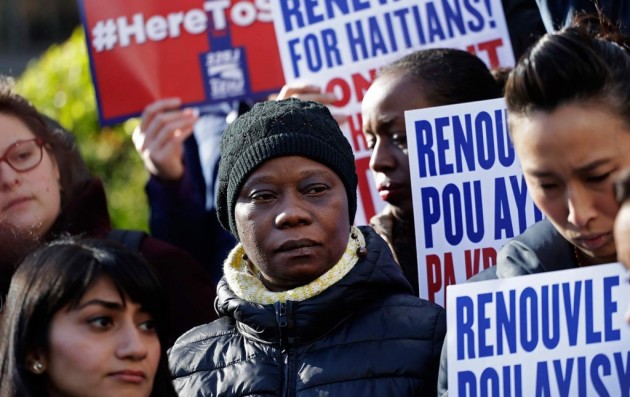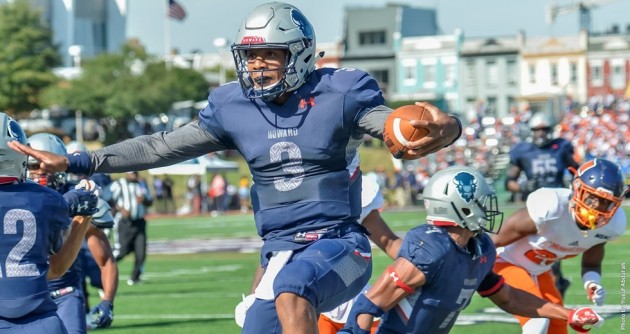MLK Day in the Nation’s Capital

King gave his last Sunday Sermon at the National Catedral
The Rev. Dr. Martin Luther King Jr. loved music, so say his friends and biographers, and at times King reflected on its magic
“God has wrought many things out of oppression,” King said in his 1964 opening address at the Berlin Jazz Festival. “He has endowed his creatures with the capacity to create, and from this capacity has flowed the sweet songs of sorrow and joy that have allowed man to cope with his environment and many different situations.”
More than 50 years after King gave that speech, hundreds gathered to honor his legacy with those “sweet songs” as the Washington National Cathedral hosted a Martin Luther King Day service, entitled “All God’s Children.”
They were feted to musical, dance, and spoken-word performances by the African Heritage Dancers and Drummers, The Bishop John T. Walker School for Boys Chorus, soloist Francese Books and dancer Mahkai Carroll, the Washington Performing Arts’ Children of the Gospel Choir, poet Tika Wallace and the Howard Gospel Choir of Howard University.
King delivered his final Sunday sermon from the cathedral’s Canterbury Pulpit on March 31, 1968, just days before his April 4 assassination in Memphis, Tenn. The cathedral has made it its mission to proclaim and achieve King’s vision.
“The work’s not done,” said the Rev. Canon Jan Cope, who serves as the cathedral’s vicar. “We feel his legacy and work very strongly and passionately here, and it’s a house of prayer for all people.
“We feel that it’s our great privilege to open our doors and continue to tell the story because the work’s not done.”
As part of the mission to continue Dr. King’s work, admission to the service was a canned, non-perishable good or children’s book, which would be donated to Friendship Place and Covenant Baptist Church, according to Sara Kirsch, a member of the cathedral staff.
“Martin Luther King tried to do his best with the community, tried to bring everyone together,” Kirsch said. “That’s ultimately what we’re trying to do to make the church more open to everybody.”
And indeed, the church was open to everybody. It is the world’s sixth largest cathedral and its seats were filled from front to back with people of all walks of life who came to hear just a bit of the “sweet songs” of joy of which King spoke.
“If you looked across the sanctuary, you didn’t just see black people,” said Brandon Cox, vice president of the Howard Gospel Choir. “You didn’t just see white people. You saw Hispanics, you saw Indians, you saw all these other ethnicities come together as one to honor and celebrate Dr. Martin Luther King.
“And one of the things the gospel choir stands proudly on is love and how music is universal. We use our ministry of music to reach everybody.”
Bené Durant, 70, attended the service.
Durant was born in Portsmouth, Va., in 1944. She grew up during the time of massive repression and efforts to prevent desegregation of public schools. It was the era of Jim Crow, and Durant remembers the signs separating whites from coloreds. She recalled how she sat in the balcony when she went to the theater.
Due to efforts by King and others, as well as her own hard work, Durant said, in August 1967, she became the first black librarian in Arlington, Va. Despite customers calling her asking, “Are you that black bitch?” she rose to become department head over two white women.
And one thing she felt that the new generation may be missing is a certain drive, she said.
“I think people need to value education more,” she said. “I don’t think there’s that emphasis on education and trying to be the best you can. A lot of people want something for nothing.”
Melvin Deal is the founding director of the African Heritage Dancers and Drummers, a group that has been a part of the MLK Day celebration at the cathedral for many years.
“We’re always very honored to be asked to come and perform, giving honor to our ancestor, Martin Luther King, and showing people in the community that young people can do something positive,” Deal said. “The young men in my company are all honor roll students, and they are excellent percussionists. We like to bring forth the young people to let people know that we are in good hands. They are our future.”
The cathedral took up an offering, part of which went to the Cathedral Scholars Program, which has successfully prepared 100 percent of participating students for college.
The service ended with a call to stand. Everyone joined hands or linked arms. They swayed from side to side and sang with one voice.
It was an old song, one of the “sweet songs” of joy that King sang and so many others have sung since him.
“We shall overcome. We shall overcome. We shall overcome someday.”






